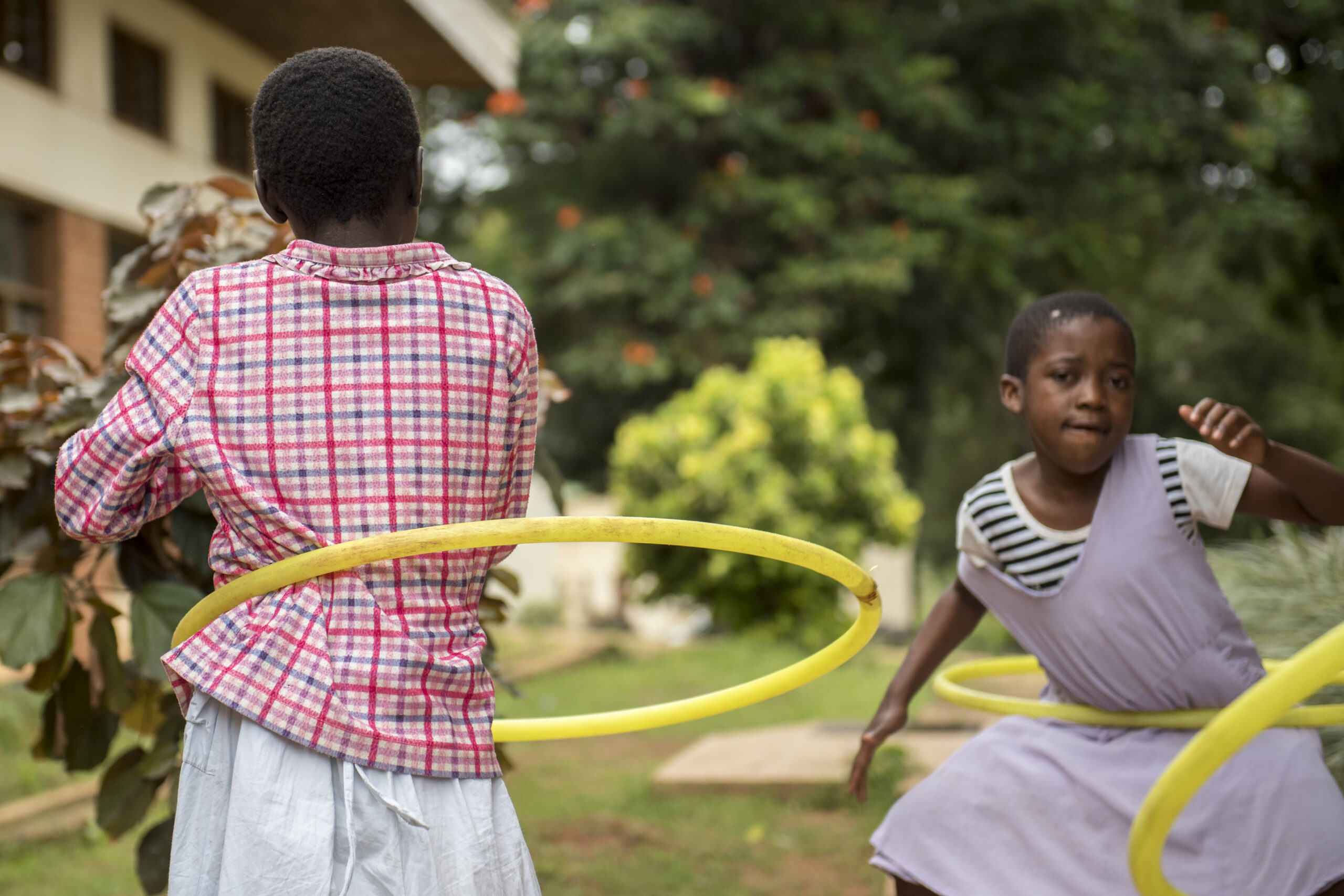Six young boys lounge in the shade of an acacia grove that serves as the entrance to Napuu, a village on the outskirts of Lodwar, Kenya. In the distance, dust rises behind a lorry trundling across the sand. As it nears, the boys excitedly jump up and run to the village, carrying news of the arrival of the Beyond Zero mobile clinic. Within the hour, their mothers will return with them for vaccinations.
The Beyond Zero clinic is one of 46 clinics dispatched by First Lady Margaret Kenyatta to reduce maternal and child mortality. EGPAF has partnered with the Beyond Zero Campaign in Turkana to reach marginalized populations. Today, the clinic is vaccinating children for measles and rubella, as well as providing HIV testing and counseling to people of all ages through two HIV Testing Services (HTS) counselors from Lodwar County Referral Hospital.
Peter Hector and Nelly Asekon, both 18, sign in with a health worker stationed outside the clinic. They have been married for only three months. When they are called, Nelly follows her husband up the clinic steps to a small room, where Mascoh Echukule, an HTS counselor, is waiting.
After welcoming the couple, Echukule asks each of them if they consent to HIV testing and counseling. With their approval, Echukule explains that this is a rapid test. He will prick their fingers, collect blood samples, and place them on a reactive strip. After 15 minutes, the strip will indicate if either of the two is HIV positive . Echukule asks Peter and Nelly what they will do if they test positive or if their partner tests positive. Both say that they will support the other and seek further testing and treatment at the hospital.
After asking once more if they agree to be tested, Echukule first pricks Peter’s finger, then Nelly’s. While they wait for results, Echukule engages the couple in a discussion about HIV and AIDS, explaining methods for transmitting the virus and correcting misconceptions—for example, the idea that a person can become infected by simply touching someone who is HIV-positive.
Echukule reviews methods of HIV transmission and asks Hector and Nelly to assess their risk for infection and asks them about their personal plans to prevent infection. He then demonstrates the proper use of a condom, from checking the expiration date on the package to rolling the condom onto a model penis. He says that some men try to reuse condoms by washing them, but that this is ineffective and dangerous.
Now the test strips are ready, and Mascoh shows them to Peter and Nelly. Both are negative. Echukule counsels them to avoid unprotected sex with other partners and to continue to test together once a year.
“The value of having a mobile clinic is that there are some clients who are unable to move to the hospital,” says Amos Kiyonga Ekidor, the other HTC counselor. “And there are some clients who fear going to the hospital.”
“Most people who come to the hospital are sick,” adds Joseph Ekenyo, the HTS supervisor. “But at the village when someone is not sick, most of the time they feel that they don’t need to go to the hospital. So those are the people we are reaching.”
Akidor says that he has noticed an increase in the number of people getting tested since he started working as a counselor four years ago.
“Previously there was that fear around testing,” he says. “But there [has been] a lot of community sensitization. Now we have radio programs for HIV awareness. Also there is a vehicle that goes around all of the villages giving awareness on HIV. Now many people know they know the importance of testing. That’s why they come willingly.”
If a test result is positive, “the first thing that I do is give an allowance of time to the client,” says Akidor. “I ask how they are feeling. Then we do a second test.” If the second test is positive, Akidor calls a taxi to take the client to the hospital to be immediately linked to care and treatment.
“I was relaxed,” says Peter, standing under a tree while his wife shyly smiles. “I expected a negative result; I know how I have been living. But I wanted to check. When our neighbors told us that a mobile clinic had arrived and was administering HIV tests, I decided to get tested. I told Nelly, ‘We are just here in our home doing nothing; let’s go get tested.’”




